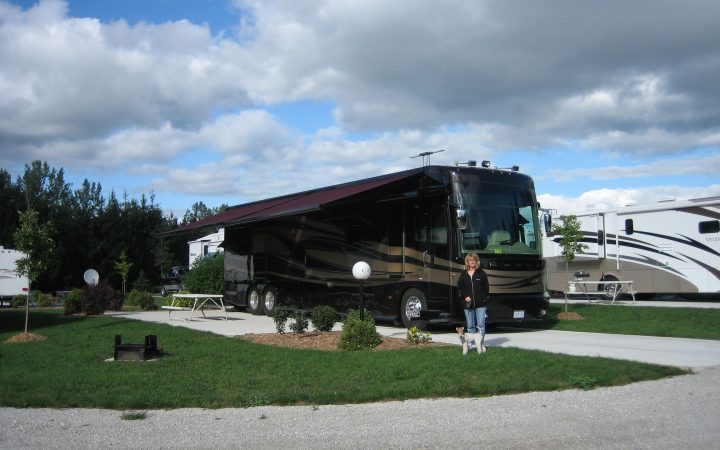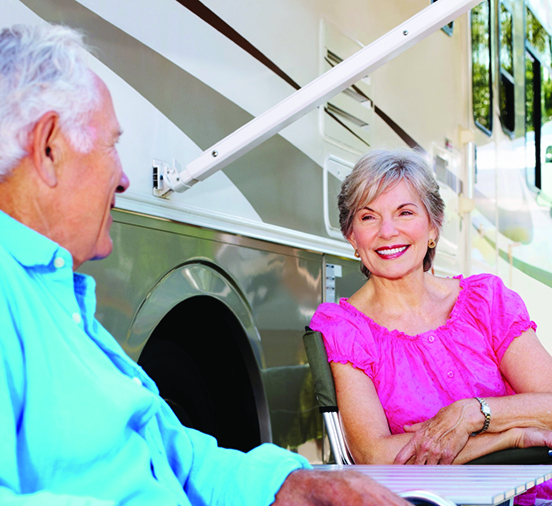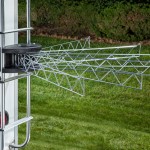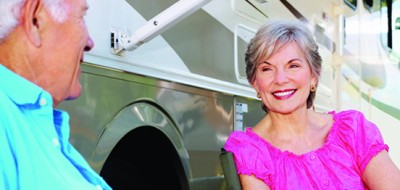 Selling RV lots in North America was first introduced many years ago in the southern U.S. with snowbirds as the target market. At that time it carried a stigma of time share sales, turning many people away. Most people had trouble wrapping their head around such a purchase and believed it was a poor investment and would never be popular. Over the years, however, the popularity grew and many snowbirds were attracted to this form of camp ownership. As the popularity gained, so did the prices. People that had got into the market early resold their properties and turned huge profits. Many doubled and, in some cases, tripled their investments. There were RV lots that sold for near one million dollars and $200,000 or more price tags were common. Life was good.
Selling RV lots in North America was first introduced many years ago in the southern U.S. with snowbirds as the target market. At that time it carried a stigma of time share sales, turning many people away. Most people had trouble wrapping their head around such a purchase and believed it was a poor investment and would never be popular. Over the years, however, the popularity grew and many snowbirds were attracted to this form of camp ownership. As the popularity gained, so did the prices. People that had got into the market early resold their properties and turned huge profits. Many doubled and, in some cases, tripled their investments. There were RV lots that sold for near one million dollars and $200,000 or more price tags were common. Life was good.
Today, however, the market demand has receded. Prices have dropped considerably and the sales frequency has also dipped at a similar rate. This has been driven by a rapidly growing availability of properties that have been developed and, of course, the down turn in the economy since 2008. In some areas the sites probably became over valued adding to the slowdown.
So, is buying an RV lot a viable purchase in today’s market? Yes, in my opinion it may fit many people’s needs. Though, as often as the case may be, ownership of such a property may well exceed the costs of merely renting. Owners will often rent out their property when they are not using it, therefore somewhat reducing their yearly costs. The thought of making extra income off your own RV lot might have you browsing RV lots for sale sooner than expected.
This, however, can only be accomplished by soliciting people during the geographical seasonal window, and in many cases will only subtilize the ongoing costs.
So let’s look at what costs are to be expected.
- Yearly property tax payable to the local city or county.
- Monthly HOA fees payable to the park or owner’s association. (12 months per year)
- Insurance covering at least liability and perhaps buildings, if present.
- Property maintenance over that included in the HOA’s.
- Exposure to “Special Assessments” that can be levied by the association in the case of cash short-falls.
- Advertising, should rental clients be solicited.
- Electricity, though very low to nil off season.
Now let’s take a look at possible benefits of owning a private lot.
- A guaranteed place in the sun during a busy part of the season.
- The ability of tailoring the property to your liking and application.
- The pride of ownership.
- A possible gain in value over time.
However, in most cases it is not a cheaper alternative to renting. Paradise comes at a cost.






Peter Mercer
Regarding kid friendly RV resorts. I am not sure where you may be looking geographically, but there are many high end RV resorts that do have children. Some people may assume a park does not like people with children because they see few or none. But actually there are probably are few as such lifestyle may exceed the budget of most younger families. Also, the lack of children’s play areas is driven by the low numbers of such users present.
But, when all is said and done, the majority of RV resort property owners are generally older or at least past their child rearing days. A great way to test the park as far as kids fitting in, is to rent in one for a few weeks.
I hope you find a comfortable location where your family can enjoy all the rewards that the RV lifestyle has. Thanks for taking the time to comment.
Anonymous
My husband and I would like to purchase an RV lot it is a good investment for us as we travel 9+ months out of the year and would like to have a place to come “home too” for a short time each year. Many of the resorts are kept up well with HOA fees around $450 a month. We have a 1 year old and a 4 year old. We have a 2016 45′ class A Bus and pull a BMW. We are not poor we have cash I’m sure someone would want but we have looked and even the non 55+ communities do not want families. So although this is a good option for us to have a RV spot rent it when we are not there and keep a few things there, we can’t. Super frustrating that if you have children in the RV world you need to stick to the dumpy side of town.
Good Sam Camping
You might want to post your questions on https://forums.goodsamclub.com/ Chances are, there’s somebody out there who has already done just what you’re planning.
Anonymous
I plan to take my RV to a summer location in Western North Carolina and a winter location in Eastern South Carolina. Spring and fall will be at home on Kentucky Lake in Western Kentucky. I would like to purchase a small piece of land in each location and install the necessary utilities on it. I am not a fan of RV parks for long term stays as too many are now filling up with permanent residents. I have no need for the recreation and amenities of commercial RV lots and resorts. Do you have any advice for me or suggestions from RVers who have had experience with this?
Kenneth Pratt
We purchased a membership in a local privately held campground facility that provides us with a permanent place to park our RV (much cheaper than a storage facility) as well as activities, pools, clubhouse and more. While some would see it as boring going to the same place all the time, we are at least guaranteed a site and can go off site during the less busy times for some change in state or private parks of our choosing. We pay for the membership, electricity and club dues. We can sell our membership at anytime.
marcia
thank you for your insight. We have thought about the purchasing of a lot but feel it would be better to rent in the long run. The reason we had given this such “thought” is we would then have a place to park our 42′ coach when we are not using it and that’s in the winter as we live in Fl. If we could find a place that is decent with lots that go for around 19K we still would consider. Any ideas? We live around Ocala, Fl